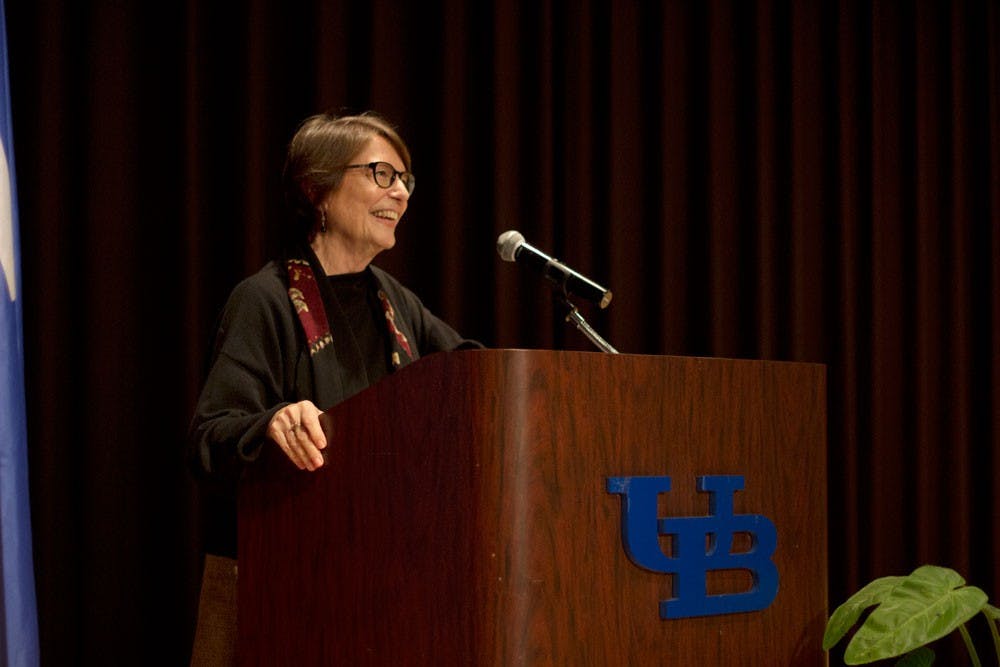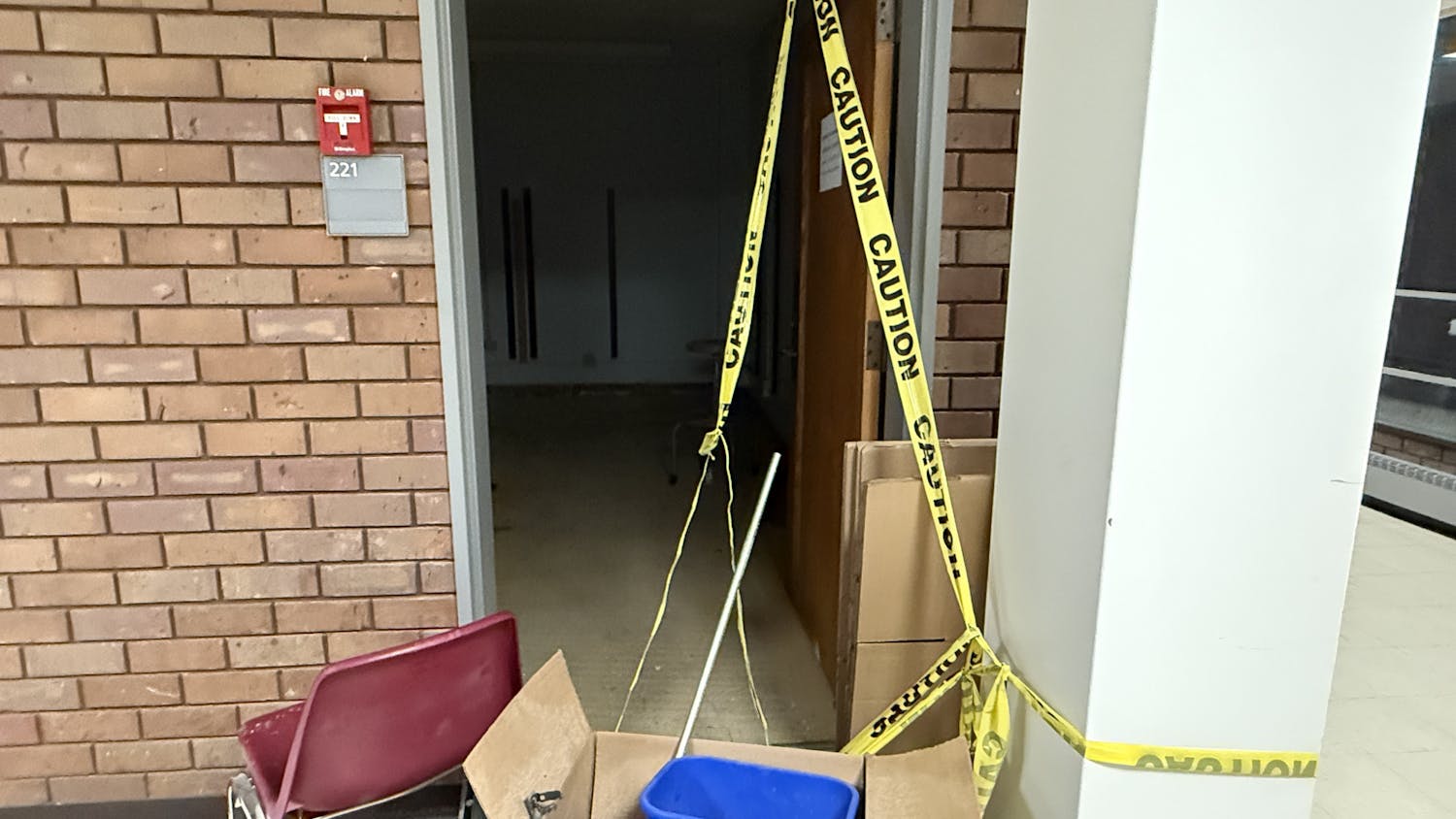Geneva Overholser said in order to have a “healthy media diet,” individuals need to watch what they consume.
“We are what we eat … we are what we consume,” Overholser said. “This applies to media.”
Overholser, a senior fellow at the Democracy Fund and an independent journalist in New York City, gave a lecture Monday in the Student Union Theater as part of UB’s International Education Week. The lecture, titled “The Media Revolution: What it Means for You,” was about the progression of journalism amidst the digital era.
Overholser – who was an editor of The Des Moines Register when it won a Pulitzer Prize in 1991 for its reporting on an Iowa woman who was raped – said with the way journalism has been heading, she’s worried about the future of professional journalism.
She said with “listicles” – articles that are solely done in list format – and “platishers” – a combination of a platform and a publisher – the way media is produced is changing, and big-named newspapers such as The New York Times are struggling for as many “clicks” as other websites who produce those types of articles are getting.
However, websites like Gawker and Buzzfeed have adapted from solely having “listicles” as their main format to now having substantial news articles, Overholsersaid .
Overholser also discussed how social media is changing the way we consume media. Individuals now have the role as both consumer and contributor. With the public as the “creators of content,” Overholser said media is produced at an exponentially faster rate than it used to.
“When breaking news happens it’s faster paced. Before, it might have been the next day to find out in-depth news,” Overholser said.
Last week’s terrorist attacks in Paris, was the No. 1 trending topic on Twitter. Overholser said it’s not uncommon for people to get their news from social media such as Twitter or Facebook.
But this may pose as a problem, she said. With so many different platforms putting news out there, news has become more immediate yet less reliable. Overholser said the consumer’s job is harder as he or she must find if the article is credible and factual.
“Citizen journalists” – a term in which Overholser said has been created over time – has become a norm. She said that although she believes the public having the ability to create and share news should be celebrated, the existence of professional journalists is vital in our “healthy consumption.”
“Our society pays for it when we consume junk,” Overholser said. “Remember that as your own curator, you will be as healthy as the news you choose.”
Marlee Tuskes in a news desk editor and can be reached at marlee.tuskes@ubspectrum.com. Follow her on Twitter at @marleetuskes5.





